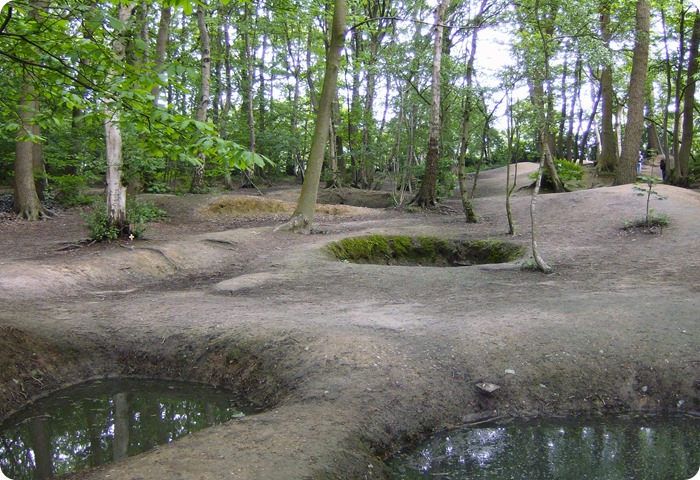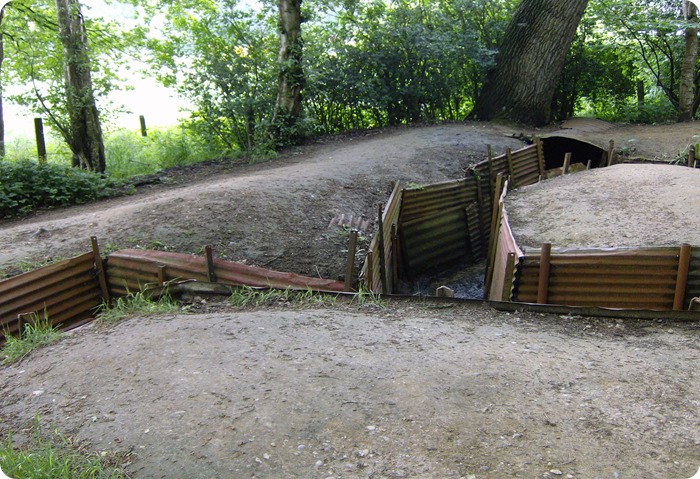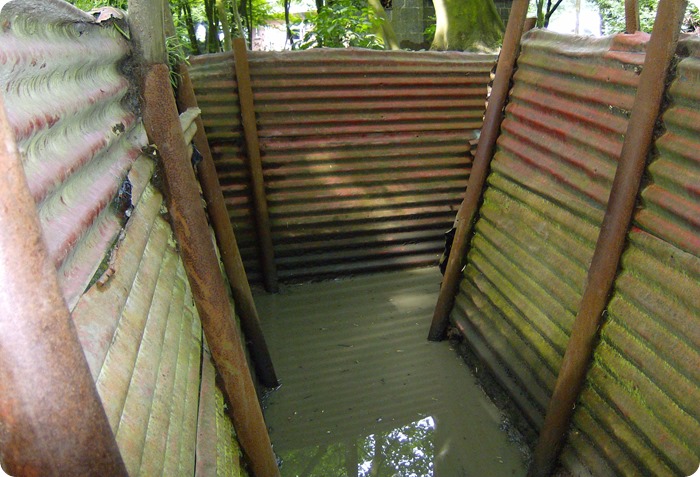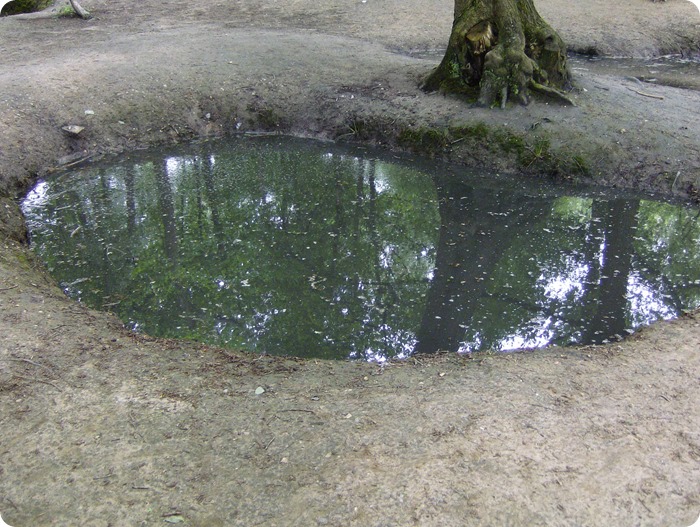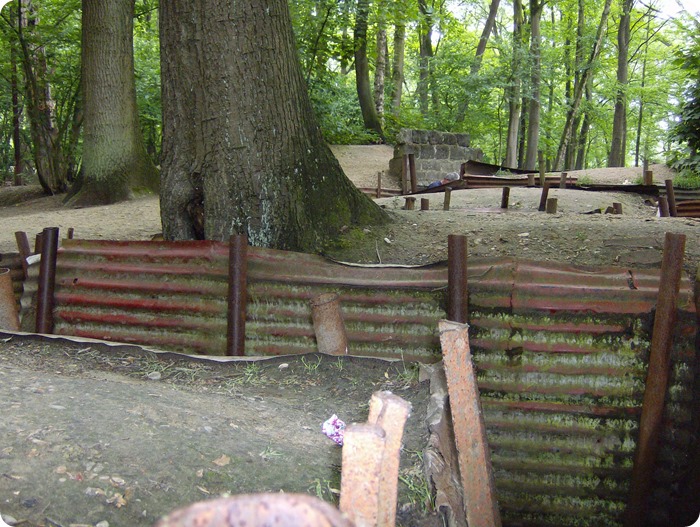Sanctuary Wood is the popular name for an uncultivated corner of land nestling in the rolling green Flemish countryside to the south-east of Ypres. Marked as Hill 62 on Great War British military maps, the name Sanctuary Wood was first used, apparently with no sense of irony, by the British forces defending this section of the Ypres Salient during the first Battle of Ypres in 1914 when they used the flimsy cover of the wood to shelter their wounded and dying men.
What passing-bells for those who die as cattle?
– Only the monstrous anger of the guns.
Only the stuttering rifles’ rapid rattle
Can patter out their hasty orisons.
When the farmer returned to reclaim his wood in 1918 he found an unearthly landscape of bare, shattered trees and ground covered by flooded trenches and pock-marked with shell holes. Like most Flemish farmers he gradually returned the bloodied battlefields to cultivated land, ploughing up a fresh crop of human remains and the detritus of war each year for many decades afterwards. But he left Sanctuary Wood as it was, one man’s makeshift memorial to those who had fallen. The land, as they say in Flanders, never forgets.
No mockeries for them; no prayers nor bells;
Nor any voice of mourning save the choirs, –
The shrill, demented choirs of wailing shells;
And bugles calling for them from sad shires.
Sanctuary Wood is nowadays a museum and one of the few places in modern Flanders where one can gain some idea of what the original trench network in the Great War was like; the trenches in which hundreds of thousands of young men from all nations died.
What candles may be held to speed them all?
Not in the hands of boys, but in their eyes
Shall shine the holy glimmers of goodbyes.
The pallor of girls’ brows shall be their pall;
Their flowers the tenderness of patient minds,
And each slow dusk a drawing-down of blinds.

